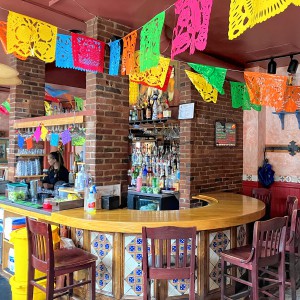In a world increasingly driven by digital engagement, content creation has turned to a lucrative career path for many Nigerians. While creativity and passion remain key motivators, the financial prospects of monetisation through clicks, views and sponsorships have significantly contributed to the rise of content creators across various niches. From medical professionals making informative skits to food vloggers simplifying complex recipes, more people are turning their creativity into cash.
But how sustainable is content creation as a career in Nigeria? Are brands doing enough to support creators? And what does the future hold for this booming industry? A medical student who initially didn’t set out to become a content creator, Akinbile Oluwatimilehin Olamilekan, said, “I made my first content in 2018 after stumbling on someone’s video. I liked the video and wanted to try something similar. It wasn’t medical-related; it was just a random content.

People liked it, and that encouraged me to keep going. But for a while, I stopped. Then, when I started making medical content, one of my videos went viral.
That was when I realised people really enjoyed what I was doing.” Despite being a medical student, Akinbile sees himself leaving the profession, eventually. “I think at some point, maybe not immediately, but I want to go into the movie industry.
Acting is my main goal,” he revealed. His story is a reflection of a growing trend many young Nigerians who initially start content creation as a hobby eventually find themselves drawn to the entertainment industry. Unlike Akinbile, who stumbled into content creation, TSpices (Samuel Tosin Ruth) started her journey with a clear goal, which is making cooking more accessible for people.
“I actually started as just a foodie. I loved food but had zero cooking skills,” she said. “At some point, I challenged myself to learn one new recipe every week.
It wasn’t easy at all! But along the way, I fell in love with cooking and content creation.” She soon realised that many people struggled with cooking and needed simple, relatable guides. That’s when she decided to start sharing her journey online.
Now, TSpices is a recognized name in food vlogging, and also a host for a Tv show sponsored by a brand. She prefers YouTube over other platforms because of its long-term benefits. “My videos remain accessible for a long time.
Since YouTube is a searchable platform, people can still find my recipes months or years after I post them. Plus, I still earn from older videos, which makes it a great platform for long-term growth,” she explained. While both Akinbile and TSpices started creating content for fun, many new creators today are drawn to the industry because of the earning potential “I think monetisation opportunities have driven more people to content creation,” Akinbile said.
“When I meet new creators, one of the first things they ask is, ‘How do you make money from content?’” For TSpices, content creation is both a passion and a source of income. “Being able to do something you love and make money from it is amazing,” she said. “But I feel like the people who stick with it long-term are those who genuinely enjoy creating.
If you don’t enjoy the process, it will eventually feel like a chore.” Earnings from content creation vary widely based on platform, engagement, and audience reach. According to TSpices Kitchen, a YouTube video can earn anywhere from $50 to $4,000, depending on factors like views and video length.
“For me personally, I make around $500 to $2,000 per month from my videos,” she disclosed. “Even older videos still bring in revenue as they continue getting views.” Meanwhile, Akinbile pointed out that Facebook and YouTube are the most profitable platforms for Nigerian creators.
“Instagram and TikTok don’t pay Nigerian creators. X (formerly Twitter) only pays based on engagement, and you even have to pay for a blue tick to qualify for revenue. But Facebook and YouTube actually pay content creators,” he explained.
For many content creators, brand partnerships are a significant source of income. However, Akinbile noted that international brands tend to pay better than Nigerian brands. “Most brands I’ve worked with that paid really well were international brands” he said.
“Maybe they appreciate content creation more, I don’t know. But Nigerian brands are trying their best too.” TSpices Kitchen shared a similar sentiment.
“There are good brands that understands the value of social media and pay creatives well. But it could be more widespread. Many creators still struggle to get fair compensation,” she added.
The actor, theatre teacher and comedy impresario, Tunji Sotimirin, emphasises the importance of financial literacy and entrepreneurship in the creative industry. According to him, some universities in Nigeria have already incorporated the entrepreneurial aspect of theatre arts into their curriculum, teaching students how to monetise their craft. He believes that this should be encouraged more widely, as many graduates struggle to turn their passion for the arts into sustainable careers.
One of the ongoing debates in Nollywood is the rise of social media influencers and content creators landing major acting roles ahead of professionally trained theatre artists. Sotimirin acknowledges this reality and encourages theatre arts graduates to embrace content creation themselves. He encourages them to leverage social media to build their brand, create visibility, and attract opportunities in acting and other aspects of the entertainment industry.
Sotimirin also highlights the impact of streaming platforms on the film industry. Before the rise of platforms like YouTube and other streaming platforms, filmmakers used to struggle to distribute and market their projects, relying on third parties who sometimes exploited them financially. Now, producers can upload their work directly, reach a global audience, and get paid without intermediaries taking a large cut of their earnings.
This shift has made it easier for creators to monetize their projects independently, contributing to the growing trend of digital content monetization. The former Director of Productions at the National Theatre, Lagos, Biodun Abe, also provides historical perspective on content creation, particularly in theatre and performance, he said: “Content creation in Nigeria has evolved from traditional oral storytelling and folk theatre to digital streaming and immersive experiences.” According to him, “We’ve moved from traveling theatre to Nollywood, and now, social media is revolutionising the space.
” He said younger audiences prefer shorter, high-energy performances that blend drama with music and dance something social media platforms like TikTok and Instagram have mastered. While content creators in digital spaces are finding ways to monetise their craft, theatre practitioners face greater struggles. “Theatre requires significant financial investment, but funding opportunities are scarce,” Abe revealed.
“Competing with movies and streaming services makes it difficult to attract audiences. High production costs and venue expenses also hinder profitability.” When asked whether there are enough grants or sponsorships for theatre creators, his response was direct, “Definitely not.
” Apparently, many content creators seem to view acting as the ultimate goal. But Abe disagrees with this notion. “Acting is just one possible path in content creation,” he explained.
“The end product of content creation varies depending on the medium. It could be a skit, a brand campaign, a podcast, an educational video, or even an advertisement.” Unfortunately, Abe believes that Nigerian universities do not adequately prepare students for the business side of their craft.
“Universities focus on the technical and theoretical aspects but don’t teach students how to make money from their work,” he said. “Some institutions offer workshops in marketing, branding, and digital content monetisation, but it’s not enough.” Looking ahead, the future of content creation in Nigeria appears bright but competitive.
“The future belongs to creators who can embrace digital platforms, innovate with storytelling, and explore alternative revenue streams,” he said. As platforms continue to evolve and monetisation opportunities grow, more Nigerians will likely turn to content creation, not just as a side hustle, but as a full-fledged career. Whether through medical skits, food vlogs, or theatre performances, the creative economy is booming, and those who navigate it wisely will reap the rewards.
.
Entertainment

How Click monetisation drives youths into content creation

In a world increasingly driven by digital engagement, content creation has turned to a lucrative career path for many Nigerians. While creativity and passion remain key motivators, the financial prospects of monetisation through clicks, views and sponsorships have significantly contributed to the rise of content creators across various niches.The post How Click monetisation drives youths into content creation appeared first on The Guardian Nigeria News - Nigeria and World News.















